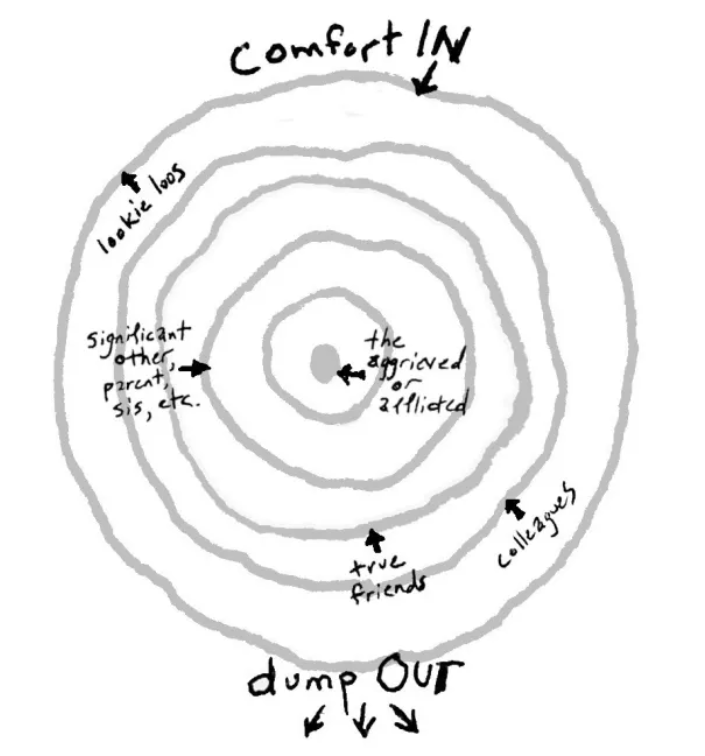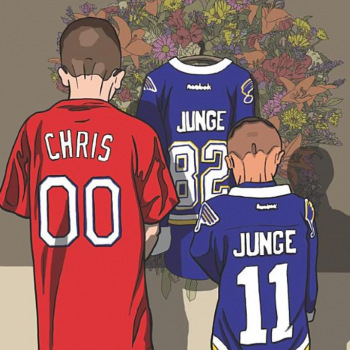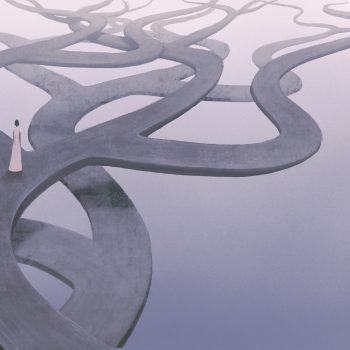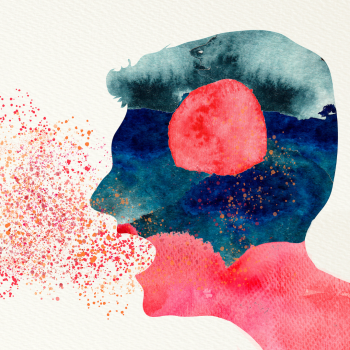Grieving During Happy Times of Life
/ Emotion : Litsa
For further articles on these topics:
Life after loss is bittersweet. We've talked about it time and again. Suddenly happy moments make you acutely aware of just who isn't here to share in them. They can also serve as reminders of time marching on, the world still turning. But those aren't the only reasons people find themselves grieving during the happy moments in life. Grief can accompany joyful moments, as even positive changes often involve some degree of loss. The best big changes in life usually require us to say goodbye to aspects of our previous lives.
I remember well graduating from college and feeling the gaping chasm left by my dad's absence. But this wasn't the only feeling of loss I had on what was otherwise such a celebratory day. I had incredible plans to move abroad and yet I felt overwhelmed by the loss that came with leaving a place that had come to feel like home and leaving friends who felt like family. It is my first clear memory of feeling so much joy and sadness coupled with so much pain all at once.
I've always appreciated this "equation" from the renowned grief researcher and clinician, Ken Doka.
Change = Loss = Grief
Ken Doka
So often we associate grief with all the most difficult moments in life - illness, death, losing a home, or a career. But even the best of changes usually involve some degree of loss. Having kids, what can be one of the most joyous life events, is often coupled with saying goodbye to aspects of pre-parenting life. Kids going off to college, a huge cross-country move that you're looking forward to, leaving a relationship you know you need to leave but that still held much love and history. There are countless examples of grieving during happy times of life. It helps when we can acknowledge and validate the losses that can come with happy changes.
Validation of grief in everyday life
In the mental health world, this is a commonplace understanding. Grief is considered a normal and natural human response to loss. Change brings loss and life brings change. But in the everyday world, this can often go unacknowledged, leaving people feeling guilty or abnormal for experiencing mixed emotions during joyful moments. This has real consequences, as people hesitate to speak up about their feelings and struggle to balance the mixed emotions that come with any significant life change.
There is no how-to guide for acknowledging the full emotional spectrum. But it helps to be open to all feelings that come up - no matter what they are. Listen for them in your mind and your body. If you notice something coming up, consider it with curiosity rather than trying to fight against it. Almost all of life's changes involve feelings on both ends of the spectrum, the easy feelings and the challenging feelings, so let go of ideas about what you "should" or "shouldn't be feeling. Just be open to what you are feeling and know that feeling grief when you're happy is normal.
The emotional spectrum
Remember, feelings can co-exist without diminishing one another. The hard feelings don't take away from the happy ones. They all live alongside each other, in what can feel a bit like the Mad Hatter's tea party. Missing those friends who you barely see anymore and those hobbies that have disappeared doesn't make your love for your child any less strong. Just like being grateful that you can get a dog for the first time after the death of your husband, who was allergic, doesn't make your grief any less painful. We can feel the full range of emotions during life's highs and lows.
Once we accept that grieving during happy times is often an inevitable part of the change, we can get more comfortable with these feelings. You can feel thrilled and supportive of your sister's promotion. You can simultaneously feel heartbroken that it means she is moving across the country. That heartbreak is not a betrayal. It is not you being disloyal or unsupportive. It is simply a byproduct of the reality that so many big joys mean change and loss.
This grief is yours - be mindful with it.
As we create space for the grief that accompanies life's joys, we'd be remiss if we didn't share this gentle reminder. Though we believe in normalizing and validating the range of human emotions, even in the good moments, this does not mean your emotions don't impact others. If your son moves out and into his own place, your grief and joy are valid. But your son is probably not the best person to look to for support in that grief! He is going through his own transition.
This is when it can be important to remember the simple but effective "ring theory" published by Susan Silk and Barry Goldman in the LA Times. They remind us how not to say the wrong thing by seeking our own support from those further removed from whatever it is contributing to the grief (so "dump out"!). Though they focus on things more traditionally associated with grief, like illness and death, this holds true for the joyful moments that create grief as well. If your son is moving out of statee for his dream job, tell him how wonderful it is! Tell your friends and your therapist about the grief you're feeling alongside your happiness for him. Check out their article here.


We invite you to share your experiences, questions, and resource suggestions with the WYG community in the discussion section below.
We wrote a book!
After writing online articles for What’s Your Grief
for over a decade, we finally wrote a tangible,
real-life book!
What’s Your Grief? Lists to Help you Through Any Loss is for people experiencing any type of loss. This book discusses some of the most common grief experiences and breaks down psychological concepts to help you understand your thoughts and emotions. It also shares useful coping tools, and helps the reader reflect on their unique relationship with grief and loss.
You can find What’s Your Grief? Lists to Help you Through Any Loss wherever you buy books:






D May 14, 2023 at 6:02 am
Thank you for this article. Last year my youngest son got married. My oldest son died 3 years ago this year. That wedding was very difficult. I dreaded the day. I think I hid the extreme sadness and loss I felt. His missing that day was horrible.
Linda W May 10, 2023 at 1:56 pm
Do you have resources for anticipatory grief?
Thanks.
Mary Manera May 20, 2023 at 10:43 pm
Linda, you’ll find this article a good place to start: https://whatsyourgrief.sidesea-staging.com/anticipatory-grief/
Sheri R May 9, 2023 at 1:25 pm
Seeing the joy/happiness together in the heading on your article and being 24 months into my husband’s passing, I read it with extreme skepticism. I am a veteran grief article fanatic…finding most unhelpful at best. Immediately I saw no joy connection in thinking of my husband on a joyful occasion……upon dwelling on the concept however, I realize my joy is in the connections with new relationships and deeper connections with previous relationships due to my experience with death and loss. So much new gained empathy….for that I am grateful, but maybe still not joyful.